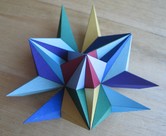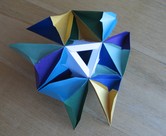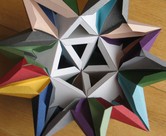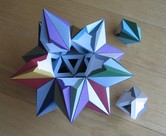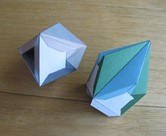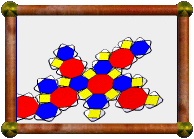

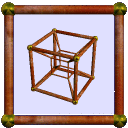
| Home > Gallery > My Models > Symmetric Compounds > Compound of 10 Tetrahedra | |
| Prev (Compound of 5 Tetrahedra) | Next (Compound of 5 Octahedra) |
Compound of 10 Tetrahedra |
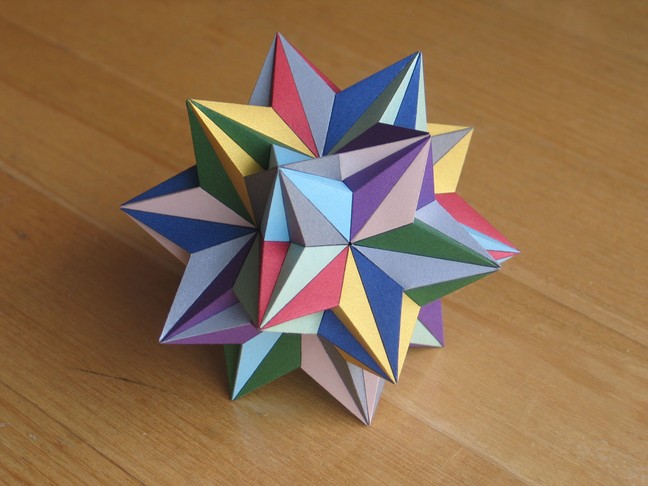
| Like or comment on facebook |
Another classic compound is the compound of 10 tetrahedra. The compound of 5 tetrahedra is chiral, i.e. it doesn't have any mirror symmetry and comes in left- and right-handed versions. If you combine these together you get this compound of 10 tetrahedra. You may also think of this as a compound of 5 stella octangula (5 compounds of 2 tetrahedra).
Can you spot a tetrahedron in each color? This model is made in 10 colors, one for each tetrahedron. But I also grouped the colors roughly into two sets of 5, one lighter and one darker, each representing one compound of 5 tetrahedra. Doing this means that dark only touches light and vice versa. I also went for matching pairs between the sets:
- Light blue and dark blue
- Light green and dark green
- Light pink and dark red
- Light silver and dark grey
- Light yellow and dark purple (ran out of matching paper colors here!)
You could also make interesting models with either 5 colors or just 2 colors. 5 colors would highlight each stella octangula, or 2 colors would highlight the two mirror image compounds of 5 tetrahedra.
The compound is also a stellation of the icosahedron (the facial planes carve out an icosahedron at the centre), and a faceting of the dodecahedron (they share the same vertex positions).
The model and the nets required to build it are available in Small Stella, Great Stella and Stella4D's Polyhedron Libraries. This paper model is 14cm in diameter.
| Home > Gallery > My Models > Symmetric Compounds > Compound of 10 Tetrahedra | |
| Prev (Compound of 5 Tetrahedra) | Next (Compound of 5 Octahedra) |
